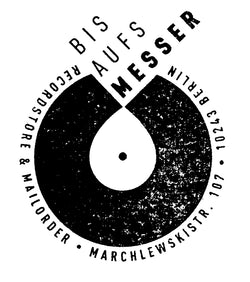A sense of authentic exploration, introspection and celebration coats every inch of Anadol’s latest album. After 2019’s Uzun Havalar she returns with an album that continues to explore a variety of deeply embedded musical traditions while also hurtling into new terrain.
The music and influences - as well as the history, culture and geography behind them - that make up Atila as an artist all coalesce to create something entirely new. The result is something that is simultaneously exploring history and tradition while harnessing innovative modern sounds and techniques. “If there is any tradition I am somehow connected to, or influenced by, then it’s multi-genres,” she says. “Such as Turkish Pop and Arabesk music from this country where I grew up. There is a connection to folk and also French pop or Flamenco, Middle Eastern melodies and orchestration, Greek adaptations, Kenny G. solos, American guitars.”
This can be heard on Felicita, not in as much as you can link up and marry the influences directly but in the way it glides across genres, eschewing convention and predictability along the way, to result in a kaleidoscopic experience of a record. For the album, Atila found a talented roster of jazz musicians in Istanbul who she recorded on top of her synth productions and field recordings. Soon enough saxophone, drums and strings began to stack up against preset drum loops from vintage organs. It’s a record where woozy psychedelic excursions bleed into dreamy synth lines, immersive ambience and the occasionally disconcerting yet incredibly tactile use of field recordings.
If it’s an album that feels like it travels through a variety of tones, feelings and emotions then it’s because the concept is loosely rooted in such a journey. Felicita translates as “happiness” and this album explores the complexities and contradictions within such an emotion.
A paradoxical nature of happiness is mirrored musically on the album, as it explores reversing the trappings of typical structure. “I like to begin working with clichés,” she says. “A lot of presets, bass and drum sequences, and arpeggios on automated organs. To try and attribute a new understanding while working on dynamics and energy flow to expand songs. Trying to keep it as interesting, humorous and contrasting to the source as possible. I try to create events and actions in the composition that can create a new meaning in itself.”
"Anadol is a very Postmodern Turkish artist — the influence of Turkish pop and Arabesk music can be heard, but also folk, chanson, Greek music, US rock and jazz. In Atila's hands, what might sound like a grisly confection emerges as deliciously fluid, gliding across genres to create something kaleidoscopic and engrossing. The recruitment of Istanbul jazz musicians to flesh out her vision means that the music here is immaculately realised, but it also has the grit and grain of great hiphop."
Neil Kulkarni in THE WIRE, April 2022.

